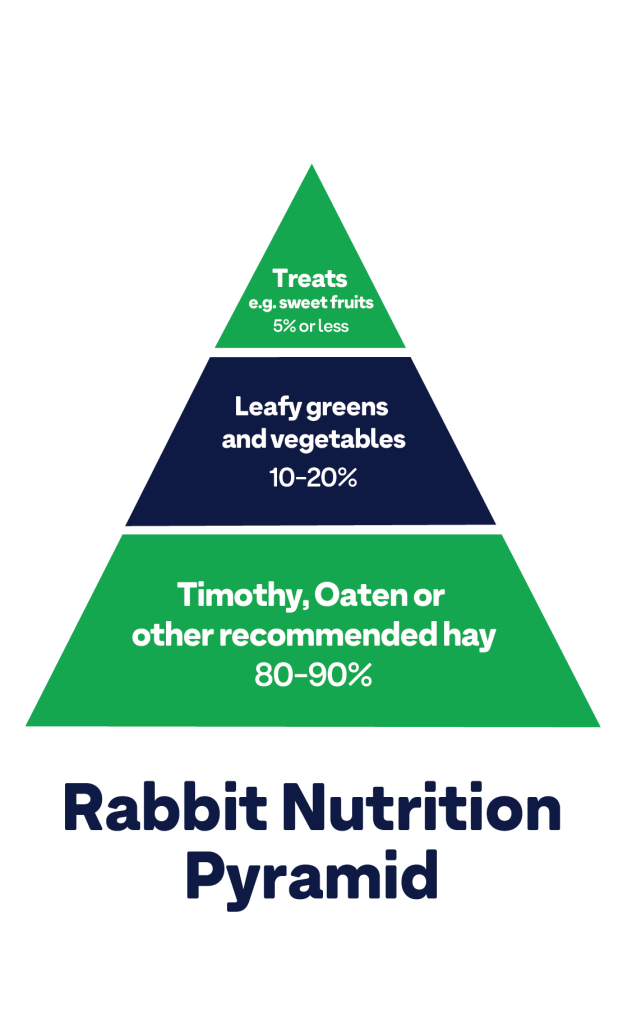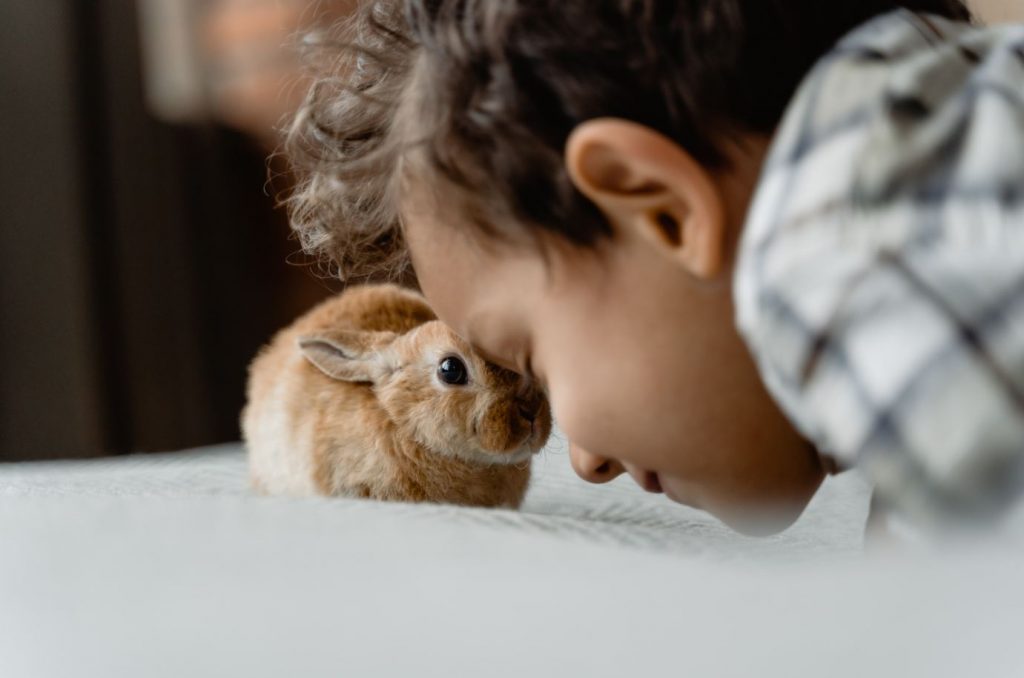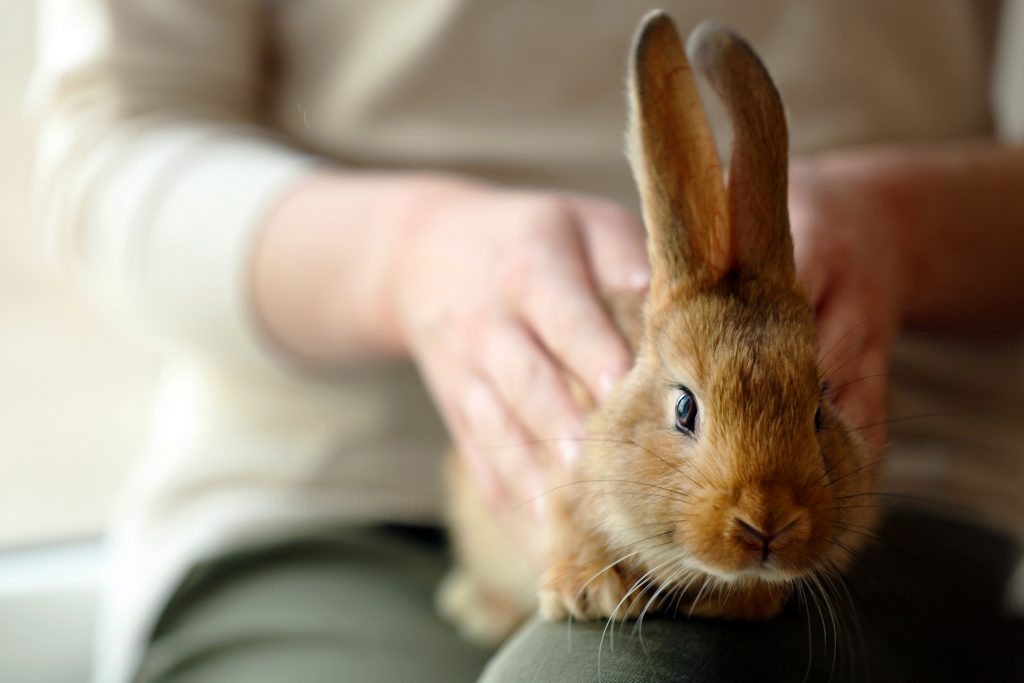Rabbits have a specialized digestive system. Their distinctive ability to process fiber and nutrients from grass and hay makes them adaptable to their wild grassy environments, but their unique digestive system means that their owners must be extra-cautious when feeding them as pets.
Please note: Rabbits are illegal to keep as pets in Queensland.
What to feed?
Hay – 80-90%
Rabbits need 80-90% of their diet as hay, so should be available at all times.
Timothy, Oaten, Wheaten, Pasture, Paddock, Meadow or Ryegrass hays are best. Alfalfa or Lucerne hay is not recommended as it is too high in calcium.
Hay feeds the friendly bacteria in a rabbit’s digestive system, as well as keeps their teeth wearing adequately. A rabbit fed not enough hay may get spurs or sharp edges on their teeth from not enough grinding. These are painful as they cut and ulcerate your rabbits’ tongue and he may stop eating. Sedation is required to file these spurs back.
Leafy greens – 10-20%
10-20% of their daily diet should then contain leafy greens such as green grass, Asian greens or carrot tops, to name a few.
Limit your rabbit’s vegetable intake to a variety of two to three different greens each day. This will reduce the chance of an upset tummy while promoting healthy teeth.
Treats – 5%
Only 5% should comprise of the “sweeter” fruit and vegies, like carrot, banana, watermelon and tomatoes. Rabbits can become overweight on too many sweet treats, and refuse to eat their hay, which causes further gut problems.
Pellets
Pellets are not completely necessary if you have the right balance of diet as above. If you are going to feed pellets, ensure only 1-2 tablespoons of high fibre pellets is offered daily.

What NOT to feed?
Some vegetables, like cauliflower, lettuce and silverbeet, can cause bloating and digestive issues, so are best avoided.
Vegetables that are toxic to rabbits include any leaves of the nightshade family:
– Capsicum leaves
– Potato leaves
– Tomato leaves
– Eggplant leaves
Garlic and onion leaves, avocado and rhubarb can also be toxic. These must be avoided.

Why does my rabbit eat his own poo?
Rabbits pass 2 types of droppings.
You will regularly see the hard, round, crumbly droppings in the cage – your rabbit will not eat those.
Cecotropes are another type of dropping that is soft, and often appear in clumps. Your rabbit will eat its own cecotropes, a process called cecotrophy. Cecotrophy is a really important process as it allows the rabbit a second digestion to access the vital protein that is difficult to extract from digesting hay the first time round.
Cecotrophy often happens overnight or early morning, so owners may not see this occur. You should not see any cecotropes lying around in the cage as your rabbits should be promptly consuming them. If you see them, this means your rabbit is not eating them as he should. This may reflect that he is unwell or has dental issues.

For general information on rabbit and guinea pig health, see here.
For specific advice on nutrition for your bunny, chat with your local Greencross Vets team.

 Greencross Vets
Greencross Vets 

